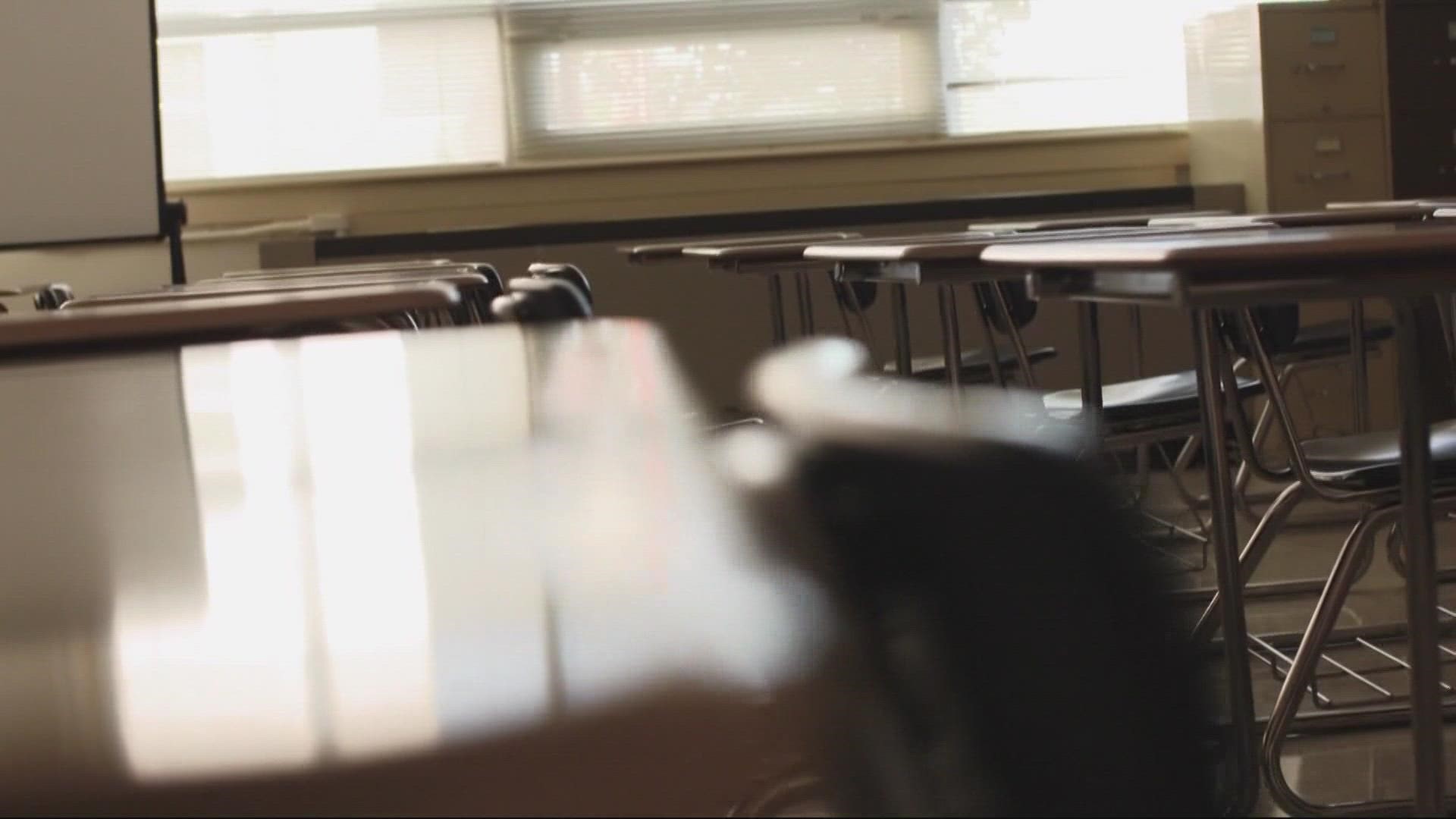PORTLAND, Ore. — Two school psychologists at two of Oregon’s largest school districts reached out to KGW for National School Psychology week, which is taking place Nov. 8-12.
They not only wanted to raise awareness of what they do, but they also shared what they've been seeing in schools this year: more kids needing mental health help.
The school year started with a mix of emotions. Coming off isolation from the pandemic, some parents, kids and teachers felt excited about the return of in-person learning; Others were anxious. School psychologists say all the instability associated with the pandemic has contributed to a difficult environment.
"This year just feels harder than last year," said Karley Strouse, a bilingual school psychologist for Salem-Keizer Public Schools as well as the president-elect of the Oregon School Psychologists Association.
"I'm seeing an uptick in the need for behavior support plans for students," Calley Ekberg said. Ekberg is a school psychologist in the Portland Public School District and is the current president of the Oregon School Psychologists Association.
RELATED: Security guard to roam Roseway Heights Middle School campus following walkout, fights
They said disruptive behaviors that are happening in schools run the gamut.
"Acting out could be a lot of different things from just sort of goofing off in class and making it a disruptive environment for the learning of others, or it could be more physical aggression," said Ekberg.
"In some of the more extreme cases, we have students that you know, are being physical towards staff, biting, kicking, scratching, unsafe behaviors like fleeing from the campus, climbing things that they shouldn't be climbing," Strouse explained.
Part of a larger trend
Back in 2019, KGW investigated classrooms in crisis. It became a series where KGW heard from educators, bus drivers and parents about students needing help and acting out.
Both Strouse and Ekberg said they believe the current uptick is part of the trend, but it's compounded by the isolation and stress of the pandemic.
"Students have been pretty isolated for a long time, as we all have," Ekberg said. "So, suddenly being put back together in a school with all these other humans, it's pretty challenging, sort of readapting to society and how you interact with each other."
"What we are advocating for is more support, for you know, mental health professionals in our schools, because we are definitely in a mental health crisis right now," said Strouse.
'It's a lot when you are spread thin'
Strouse and Ekberg said many school psychologists are overloaded with students. According to Strouse, the National Association of School Psychologists has recommended the ratio of school psychologists to students should be one psychologist per 500 students. However, Strouse said in her district, the ratio is roughly one school psychologist to about 3,500 students. She and Ekberg said it's common for school districts that operate above the recommended ratio.
The job can be draining, especially with more kids needing help who may also be dealing with high levels of trauma.
"Taking on just some of that secondary trauma, you know, hearing about these horrific things that students have been through can definitely take a toll on you," Strouse said.
When asked how school psychologists are doing this year, Ekberg echoed a similar sentiment.
“We're struggling," Ekberg said. "Yeah, it's a lot when you are spread thin between buildings."
Strouse also said another layer of difficulty involves there being a lack of school psychology programs in Oregon.
"So that can be tricky because we’re only […] putting out so many school psychologists per year in our state," she said. "Otherwise, we’re having to try to attract school psychologists from other states to come here."
Another part of the issue, Strouse said, is a lack of awareness that becoming a school psychologist is an option.
"Most school psychologists have to get an educational specialist degree in school psychology," Strouse said. "So, it’s a kind of unique degree […] not many people have heard of. But it’s in between a Master’s and PhD. It takes about three or fours years to complete with a year-long internship."
A need for more support
Ekberg said while she works primarily with special education students, helping to determine individualized education plans, school psychologists also help with specific students and their behavior. They help figure out why a student is acting out in a certain way and work with the teacher to correct the behavior.
Ekberg said too often school psychologists are utilized to help in the realm of special education. But with such high levels of need in schools right now, Ekberg and Strouse hope state and national leaders, along with school districts, consider additional funding to hire more school psychologists so they can better support students, staff and families.
"A lot of what we do is special education evaluations, those behavior support plans. But a lot of what we are trained to do isn't just within the realm of special education," Ekberg said. "We're trained to work with all students in the whole school […] and we're often not utilized that way. So, I think if lawmakers and districts could really look at utilizing us in those ways and staffing us and funding us appropriately. There's so much progress that could be made within schools."
On a positive note, Strouse said Oregon is leading the charge on social-emotional learning. She said more people are realizing just how important it is to address students’ social-emotional needs.

